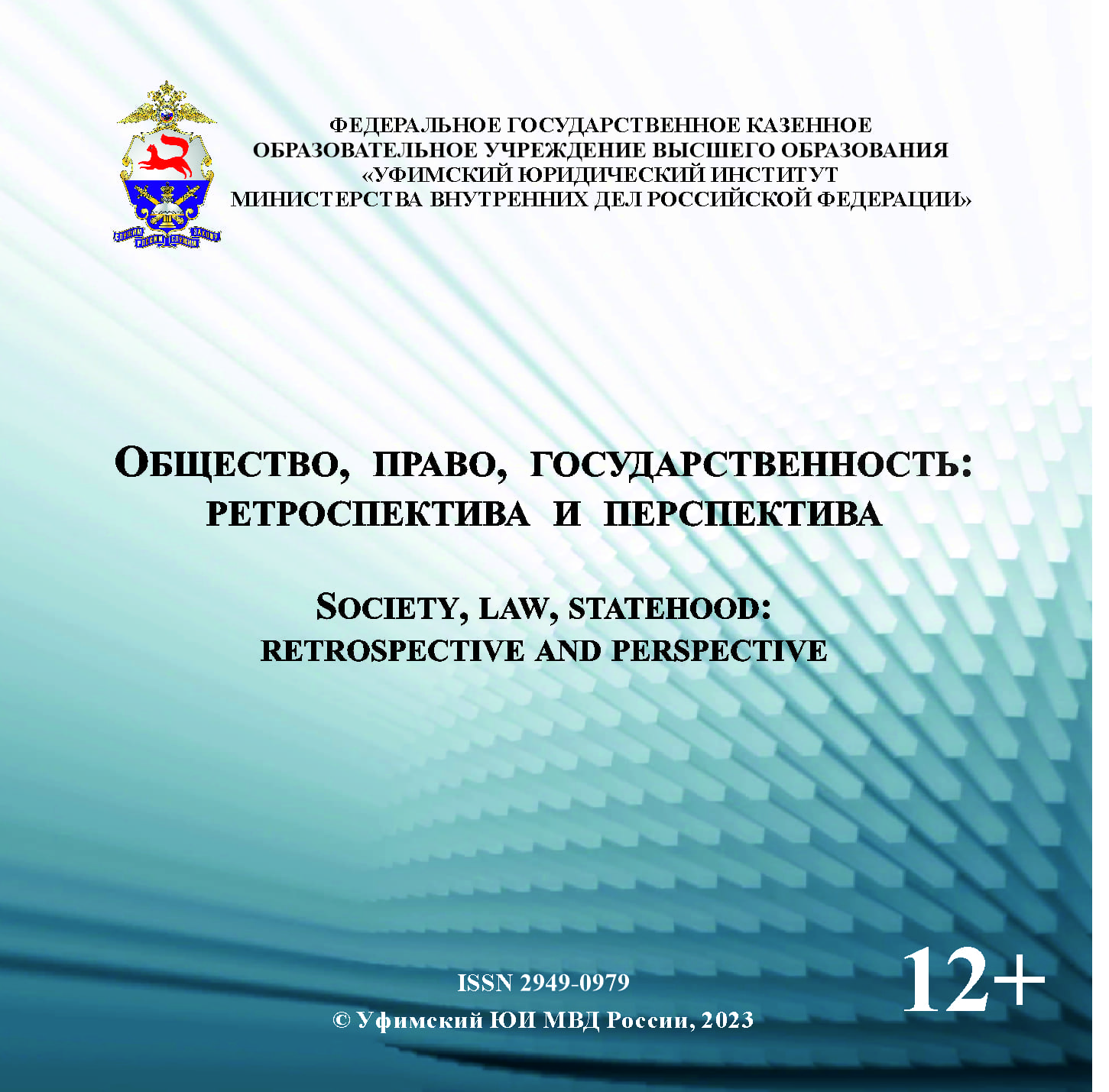Nalchik, Nalchik, Russian Federation
UDC 343.34
UDC 004
The presented article analyzes the effectiveness of the existing mechanisms of counter-terrorism activities in the context of the spread of digital terrorism in the Russian Federation. Attention is focused on the need for a theoretical and legal understanding of digital terrorism as a relatively independent type of terrorist functioning. The presence of certain difficulties in identifying and investigating digital acts of a terrorist nature is noted. The author comes to the conclusion about the need to increase the effectiveness of preventive and preventive activities, including its reorientation to the digital specifics of modern terrorist manifestations.
terrorism, terrorist ideology, digital terrorism, counter-terrorism activities, areas of the fight against terrorism
1. Bokov D.K. Digital infrastructure of terrorism: strategy of criminal-legal counteraction // Lex Russica (Russian law). 2024. Vol. 77. No. 7 (212). P. 39–48. (In Russ.)
2. Tambiev S. A., Kochesokova Z. Kh. International experience of counteracting cyberterrorism // Law and Management. 2023. No. 2. P. 160–164. (In Russ.)
3. Saunina E. V, Bazhina I. D. International experience of legal regulation of counteracting information terrorism // Bulletin of the Lobachevsky University of Nizhny Novgorod. 2022. No. 1. P. 108–115. (In Russ.)
4. Abazov K. M. The problem of using modern information and communication technologies by international terrorist organizations // Security Issues. 2018. No. 3. P. 1–9. (In Russ.)
5. Dallakyan K. A. Transformation of terrorism in the information and digital society // Bulletin of the Ufa Law Institute of the Ministry of Internal Affairs of Russia. 2023. No. 4 (102). P. 25–30. (In Russ.)
6. Starodubtseva M. A. Digital terrorism: the problem of legal justification of a political science term // State and law in the era of global changes: materials of the international scientific and practical conference / edited by D. L. Prokazin. Barnaul: Federal State Budgetary Educational Institution of Higher Professional Education «Barnaul Law Institute of the Ministry of Internal Affairs of the Russian Federation», 2022. P. 208–209. (In Russ.)
7. Savushkina M. A. Mental terrorism as a method of waging a hybrid war in a digital society // Bulletin of the Chelyabinsk State University. 2024. No. 7 (489). P. 48–54. (In Russ.)
8. Kochesokova Z. Kh. Comparative analysis of Russian and international legislative regulation of cyberterrorist crimes // Gaps in Russian legislation. 2023. Vol. 16. No. 4. P. 198–202. (In Russ.)
9. Silenkov V. I. On the issue of the ontological context of understanding terrorism // Professional legal education and science. 2023. No. 2 (10). P. 70–72. (In Russ.)
10. Tarchokov B. A. Development of extremist and terrorist crimes committed with the help of digital technologies // Eurasian Law Journal. 2023. No. 7 (182). P. 439–440. (In Russ.)
11. Kryazhev V. S. On the Need for an Integrated Approach to the Study of Terrorism and Extremism for the Purposes of Ensuring National Security // Siberian Criminal Procedure and Forensic Readings. 2023. No. 3 (41). P. 118–125. (In Russ.)
12. Rozenko S. V. Digital Technologies as a Means of Developing Terrorist Ideology in the Russian Federation: Problems of Counteraction and Punishability // OeconomiaetJus. 2023. No. 3. P. 94–99. (In Russ.)
13. Korkmazov A. V. Modern Trends of Digital Extremism and Terrorism // Gaps in Russian Legislation. 2023. Vol. 16. No. 4. P. 208–212. (In Russ.)
14. Akhyadov E. S.-M., Dadashov M. M., Makazieva Z. D. Terrorist-related crimes in the era of digitalization // Agrarian and land law. 2024. No. 5 (233). P. 319–321. (In Russ.)
15. Rozhkova A. Yu. Prevention of «digital terrorism»: legal aspect // Professional legal education and science. 2024. No. 3 (15). P. 47–52. (In Russ.)






